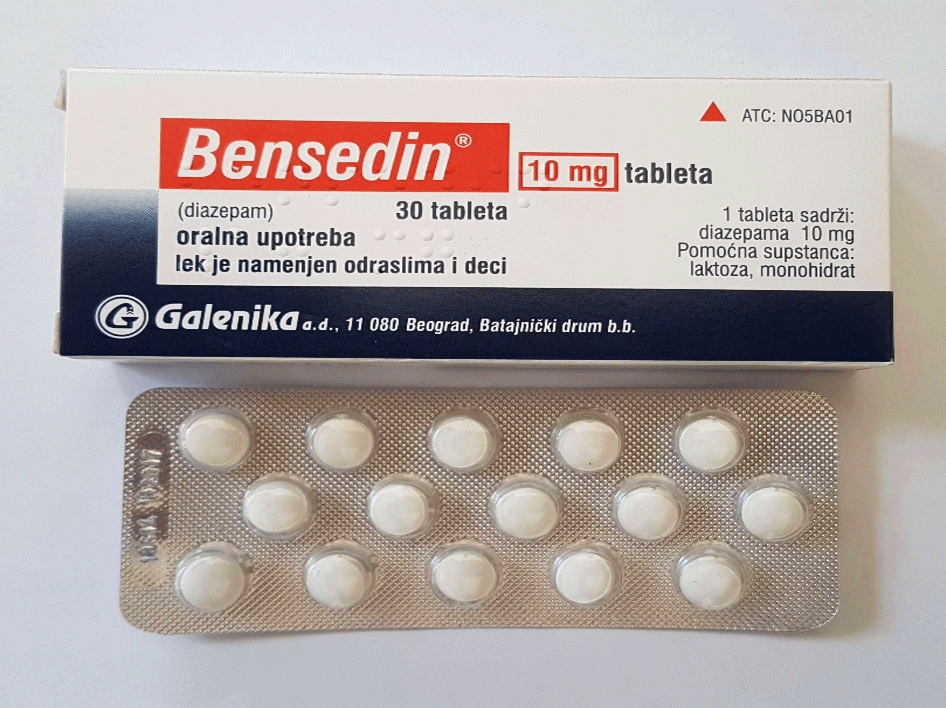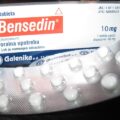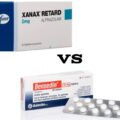What is Bensedin?
Bensedin (diazepam) is a prescription medication that is used to treat a wide range of conditions including anxiety disorders and seizures.
What is Bensedin Used For?
The main uses of Bensedin diazepam are to alleviate anxiety and to control the distress caused by alcohol withdrawal. Also, diazepam can treat muscle spasms caused by some neurological illnesses such as cerebral palsy. Diazepam is also used to control seizures such as those caused by epilepsy.
How Long Does It Take to Feel the Effects of Bensedin?
Bensedin works by facilitating the activity of the chemical GABA at various receptor sites in the brain. GABA reduces activity in different areas of the brain, including regions that help control emotion, thought, memory, and automatic functions such as breathing. By increasing the effects of this brain chemical, Bensedin helps reduce anxiety, relax muscles, and increase drowsiness. When taken orally, people usually begin to feel the effects 15 to 60 minutes after ingestion. The rectal gel may be used for those who are experiencing seizures and begins working quickly after administration.
If you take Bensedin, it’s important to know how long the drug stays active in your system to avoid associated risks. Having too much Bensedin in your body at one time can cause serious side effects. These include drowsiness, confusion, impaired movements and balance, shortness of breath, and potentially unresponsiveness.
Bensedin can easily become habit-forming. After a period of time, you can develop a tolerance for the drug. As a result, you may have to take larger dosages. Notably, overuse of Bensedin can have some alarming consequences. Studies have found, for instance, that long-term use of Bensedin and similar drugs used to treat anxiety are associated with an increased risk of developing Alzheimer’s.
Bensedin can have serious or even life-threatening side effects if you take certain other medications before it’s totally cleared from your body. It’s especially dangerous to take sedatives, sleeping pills, or tranquilizers if you have Bensedin in your system. The same is true of drinking alcohol.
How Long Does Bensedin Last?
Bensedin has a half-life of approximately 48 hours. The half-life of a drug is how long it takes for half of a dose to be eliminated from the body. As Bensedin is processed by the body, it is broken down into other substances known as metabolites. In many cases, these metabolites are detectable in the body for much longer than the drug itself. The most common metabolites of Bensedin are nordiazepam, temazepam, and oxazepam.
The metabolites of the drug may have much longer half-lives as well. Nordiazepam, for example, has a half-life of up to 100 hours. Bensedin also accumulates when people take multiple doses over a period of time, which can slightly prolong the total half-life of the substance. Bensedin—or rather, metabolites associated with the medication can be detected in the body in different ways.
Urine
Bensedin can be detected in urine for one to six weeks after being taken.
Blood
Bensedin is detectable in blood for 6 to 48 hours. Blood tests tend to be used less frequently than other test methods due to the shorter detection window and the more invasive nature of the test. However, a blood test may be used in some forensic settings or to confirm an unexpected positive urine test result.
Saliva
A saliva test can detect Bensedin for 1 to 10 days after it’s taken. Research suggests that saliva testing can be a viable alternative to urine testing for the detection of Bensedin and other benzodiazepines. While saliva tests have a fairly long detection window, this type of testing can present some challenges. Bensedin side effects can include dry mouth or hypersalivation, which can affect the ability to collect an adequate sample or may dilute the amount of detectable substance in the oral fluid.
Hair
Like many other drugs, Bensedin can be detected with a hair follicle drug test for up to 90 days. The long detection window of this testing method means that it can be used to look for past drug use. If you have been prescribed Bensedin to treat anxiety or another condition, be sure to inform the testing lab, even if you are no longer taking your medication.
False Positive Testing
There are some medications that may cross-react with drug screens. There are reports of the antidepressant medication Zoloft (sertraline) and prescription non-steroidal anti-inflammatory drug Daypro (oxaprozin) causing false-positive urine screens for benzodiazepines like Bensedin. SEE: How to Spot Fake Bensedin Diazepam





